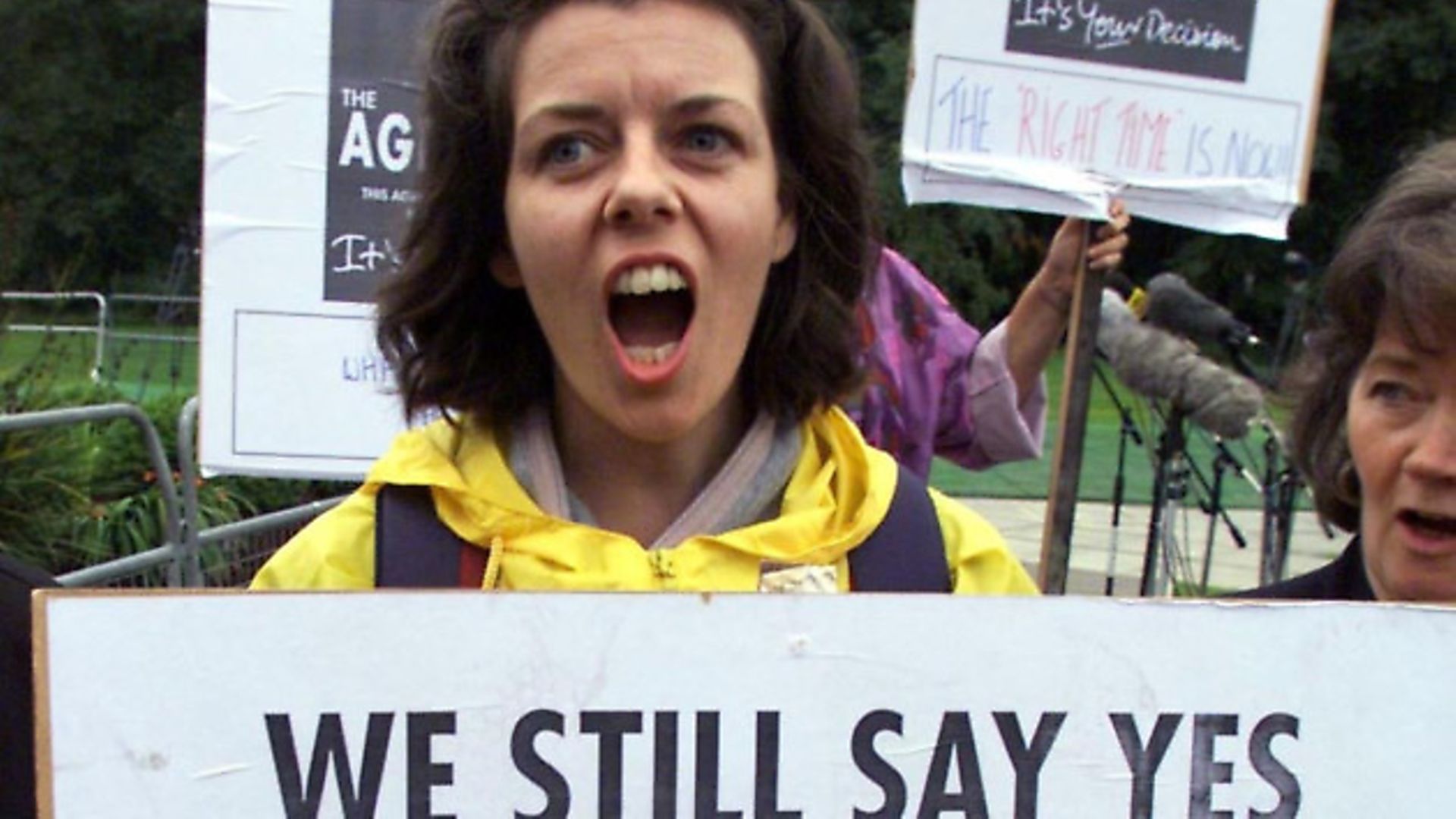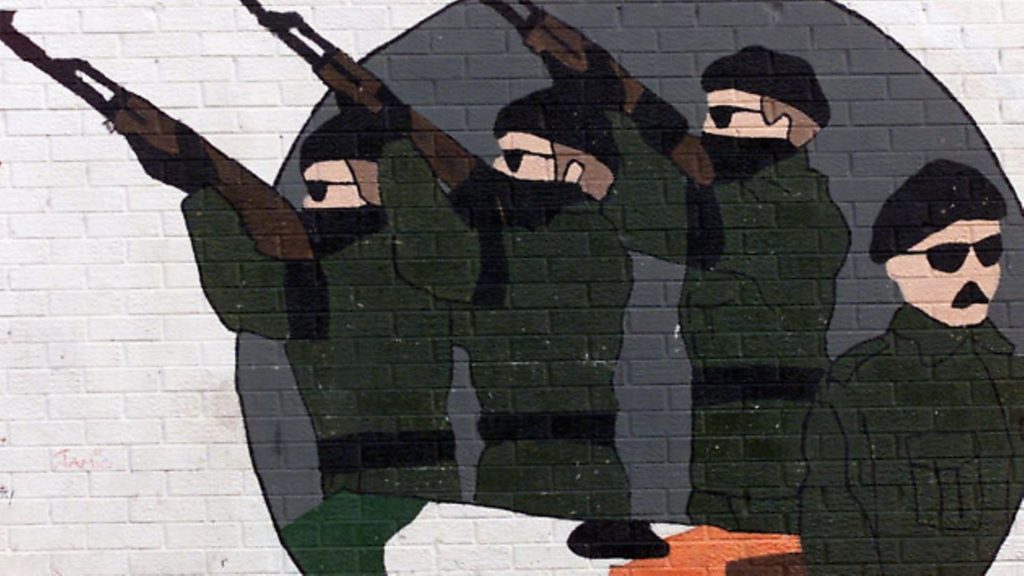
A family story of the close family bonds between Ireland and the UK, and what Brexit might mean for Ireland.

PAT McFADDEN’s parents came from Donegal to Scotland in the 1950s, when his father worked in construction and his mother in a local council children’s home. They raised seven children and the family regularly spent summer holidays in Donegal. His family’s story, replicated in thousands of families in cities throughout the country illustrates the close family bonds between Ireland and the UK. Here the Labour MP writes about what Brexit might mean for Ireland.
Ireland was the dog that didn’t bark during the Brexit referendum campaign. Some politicians did try to raise it. Tony Blair and John Major visited the Peace Bridge in Derry. Irish Government Ministers made speeches in the UK setting out the risks of the country leaving. But overall, the impact of Brexit on Ireland failed to gain anything like the attention it deserved in the chorus of arguments about immigration, sovereignty and trade.
Ignored during the campaign, it’s impossible to ignore now. With the imminent triggering of Article 50 and renewed political instability in Northern Ireland, facing up to Brexit’s Irish questions is unavoidable.
During a recent visit to Dublin by the House of Commons Brexit Select Committee, UK politicians were left in now doubt about the scale of the challenges Brexit poses for Ireland, or the hurt felt at the collateral damage caused by the UK’s vote to leave.
Three main issues were raised: economics, security and, most importantly of all, the Good Friday Agreement and what the return of a hard border might mean.
On the economic front, big questions are being asked about the future of trade between Northern Ireland and the Republic of Ireland and between Ireland and the rest of the UK. There is more trade carried out between the UK and Ireland than there is between the UK and China. In food and agriculture alone, Ireland exports about 5bn euros of goods to the UK, with just under 4bn euros worth going from the UK to Ireland. And on the north/south front, the Republic of Ireland accounts for 34% of Northern Ireland’s total exports and more than 60% of its exports to the EU.
At the moment this trade moves seamlessly, with no customs checks and a common system of rules governing products. But the UK Government’s commitment to leaving both the single market and probably the customs union creates major headaches about how this trade will be governed in the future.
The UK Government is placing its hopes in the free trade agreement it will try to negotiate with the rest of the EU. But there is no guarantee that such an agreement can replicate what exists now, and indeed no guarantee a free trade agreement will be concluded, certainly within the two year timescale set out by Theresa May.
If an agreement is not possible and the UK defaults to World Trade Organisation rules the agricultural and food trade which is so important between the UK and Ireland could be hit by the highest tariffs. Under current rules these products attract tariffs of between 20% and 40% depending on the products in question. This would have a disastrous impact on trade between the two countries.
And, crucially, trade is not just about tariffs. Market access is increasingly about common standards, mutual recognition, for example on animal welfare regimes, and having an agreement that a product or service produced in one country can be sold in another. In trade jargon these standards are called non-tariff barriers. The single market membership that has underpinned UK Irish trade has been as much about eliminating these non-tariff barriers as the more obvious tariff ones.
Pulling out of the single market and customs union raises not just the prospect of tariffs but of customs checks on products that can currently cross the border several times between field and plate and rules of origin requirements adding significant bureaucracy. Faced with all this it is not hard to see why Irish politicians and businesspeople are so desperate to avoid the scenario of no free trade agreement.
The Government has convinced itself that David Cameron could have got a better deal during his negotiation by threatening to walk away. ‘No deal is better than a bad deal’ goes the mantra. Through this thinking ministers now threaten the livelihoods of our own farmers, food industry workers, car workers and many others by openly flirting with not even having an agreement and instead defaulting to WTO rules.
In recent evidence to the Brexit Select Committee, the outgoing UK Ambassador to the EU, Sir Ivan Rogers, took issue with the cavalier attitude of the Brexiteers about walking away from an agreement. He pointed out that no major economy in the world trades with the EU on the basis of WTO rules alone – they all have some kind of mutual recognition agreements, even where these fall short of fully fledged free trade agreements. Yet ‘no deal’ is an option now being canvassed by the Government and increasingly talked up by the more ideologically driven Brexiteers.
The second area of concern is crime and security – of obvious importance given Northern Ireland’s violent history. There is very good co-operation between the PSNI and the Garda Siochana and between the Departments of Justice in both countries. However the UK’s future participation in EU wide criminal justice initiatives such as the European Arrest Warrant and a number of other crime-fighting initiatives has been thrown into question by Brexit because of the Prime Minister’s insistence that there can be no future jurisdiction for the European Court of Justice in the UK. This, rather than a pragmatic choice about which programmes to remain part of, is likely to drive the decisions. And, although there is confidence that the goodwill between the Governments will continue, no one knows how exactly co-operation will proceed if the UK pulls out of common EU-wide security programmes.
Thirdly, and most important of all, is the issue of the border itself and the Good Friday Agreement.
There seems to be an assumption in some UK circles that the Good Friday Agreement was an event, a single happening, done and dusted 20 years ago. This relaxed attitude has become more widespread as institutional memory fades and the generation of politicians and officials who negotiated the agreement have retired or moved on.
Yet this was never a single event. It was the means to a normalisation of relations over time, where borders and division would mean less and a carefully crafted and nurtured peaceful present would take over from a violent past.
The Good Friday Agreement underpinned the legal and constitutional nature of the border between Northern Ireland and the Irish Republic by placing at its heart the principle of consent. With that constitutional issue clarified, since the Agreement was signed the border itself has largely disappeared in a physical sense. Economically and socially it has come to mean less and less as trade has increased and people can move easily to work or do business in either jurisdiction.
Irish politicians from across the parties fear this progress will be halted or reversed. The phrase that comes up time after time is a dread of ‘going back’. Back to a harder border. Back to customs checks. Back to division. There is a real fear that Brexit could undermine the spirit, if not the letter, of the Good Friday Agreement by threatening the precious normality of daily life that has developed around the border in the past 20 years.
Brexiteers respond to these fears by pointing out that a common travel area between the UK and Ireland existed before both countries joined the EU in 1973. It is true that there was a common travel area in the past but we have never been in a situation where one country was in the EU and the other was not, and where the two countries operated sharply different immigration policies. This is new territory and we can’t approach it thinking we can simply rewind the clock to the 1960s.
If Ireland was neglected during the referendum campaign, it must not be in the negotiations to come. This issue is of the highest importance. Not only is the Northern Ireland border to become the land border between the UK and the EU but it will do so against the backdrop of a delicate peace and renewed instability within Northern Ireland itself.
Sometimes we only realise the true value of normality when we lose it. We take for granted easy trade and everyday decisions about where to live or work. It is absolutely vital that every effort is made not to lose the precious normality that has grown up because of the Good Friday Agreement. The UK Government will not want to undermine or threaten the agreement but there is a real danger of complacency over its future. We will have to work very hard to preserve its enormous gains and not go back to a situation that puts barriers in place, increases insecurity and rewinds the clock on progress.
Pat McFadden is Labour MP for Wolverhampton South East
Warning: Illegal string offset 'link_id' in /mnt/storage/stage/www/wp-includes/bookmark.php on line 357
Notice: Trying to get property 'link_id' of non-object in /mnt/storage/stage/www/wp-includes/bookmark.php on line 37






